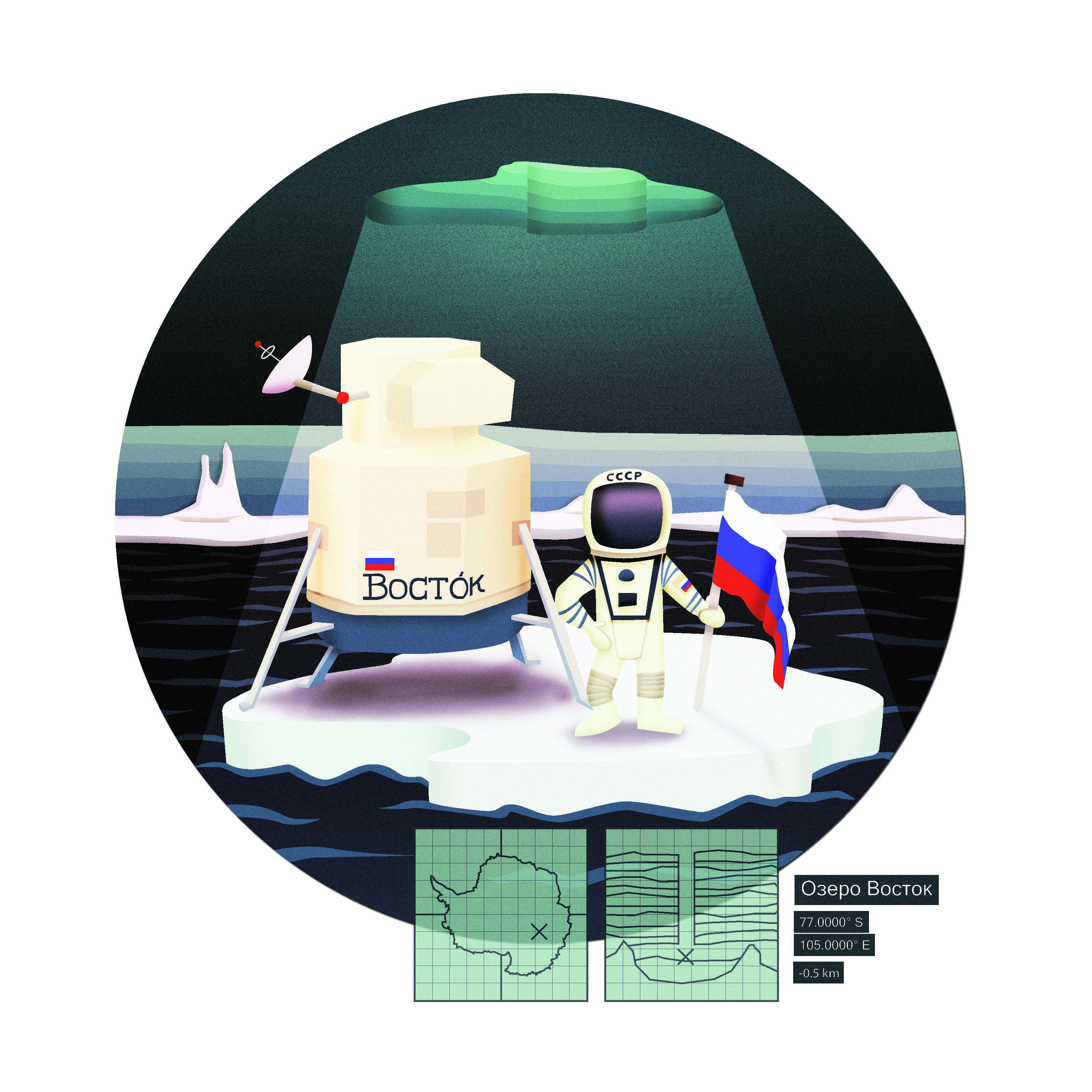Lake Vostok is situated almost 4,000 metres below the Antarctic ice. Russian scientists have been drilling there for over twenty years. The lake’s appeal is that it has been isolated from the rest of the world for so long that it might preserve pre-Ice Age forms of life.
The discovery of bacterial life in the lake would be a major find. Back in January, the team at Vostok Station retrieved their first sample from the 17-million-year-old subglacial waters. The sample was sent off for analysis in the hopes of discovering microbial life in it.
Early this month the team’s leader, Sergei Bulat of the St. Petersburg Nuclear Physics Institute, spoke to the Russian news agency RIA Novosti about the preliminary results of the analysis: the sample contains life, he said, including at least one species of bacteria not belonging to a known subkingdom. But a few days later, after the story had already spread far and wide, the results were called into question.
Vladimir Korolyov, head of the genetics lab at the institute, said that the bacteria were probably contaminants from the drill. Korolyov stated that they found “certain specimen, although not many, but all of them belonged to contaminants (microorganisms from the bore-hole kerosene, human bodies or the lab).”
“There was one strain of bacteria which we did not find in drilling liquid, but the bacteria could in principal use kerosene as an energy source,” said Korolyov, adding “we’d rather not say something we will be unable to whitewash even with the crystal clear Lake Vostok water.”
Bulat defended the results, saying that he had taken steps to rule out contamination. “We are very sure that what we have found is an unclassified native microbe,” he said to Nature. The microbe was less than 86 per cent similar to DNA from known species, which suggests that it is a new species. More detailed analysis to establish the microbe’s physiology and biochemistry, as well as its method of extracting energy from its environment, will have to wait for a more densely populated sample – which Bulat hopes to get from a 54-metre ice core expected to arrive in St. Petersburg by May.
Some researchers have said that they would be surprised if Lake Vostok was completely lifeless. An American team working at Lake Whillans, also in Antarctica, has already discovered microbial life, which is currently being analyzed. Although Lake Whillans is not as far beneath the ice as Lake Vostok, it is interesting for many of the same reasons. Until the Russian team performs further analysis or publishes something, we won’t know for sure if their claims are justified. What we do know is that, a month after the American team announced their discovery, the Russian team made a similar announcement that at least one of their scientists has characterized as hasty.
This has led to speculation about some lingering Cold War tension in the glaciological competition between the U.S. and Russia. On this view, the race for superior knowledge of Antarctic microbiology is a sort of microcosmic rehash of the space race that Russia hopes to win. The main problem with this idea is that Whillans isn’t as isolated as Vostok—it’s shallower and surrounded by rivers—so the results from the two lakes are complementary rather than directly competing.
Still, it does seem as if the results were announced to the media with unnecessary haste. The clean samples, which would settle the question, have not even been tested. This is what they call “science by press release”; in the rush to be first in today’s media-saturated culture, scientists will sometimes announce things they’re not completely sure about and that haven’t been cross-examined by their colleagues. Perhaps with a little more patience, this announcement, contradiction, and public argument would not have happened in the first place.


